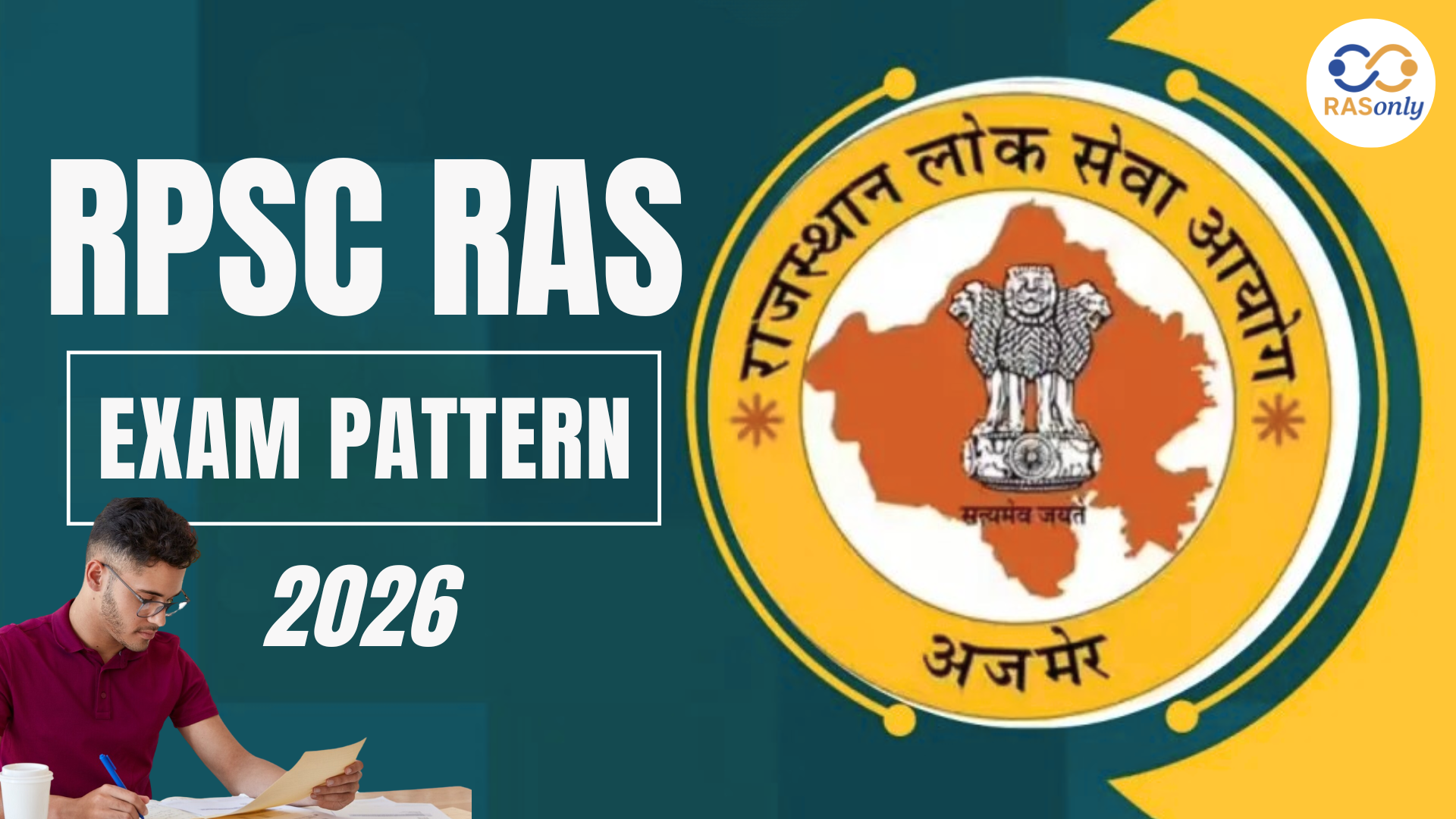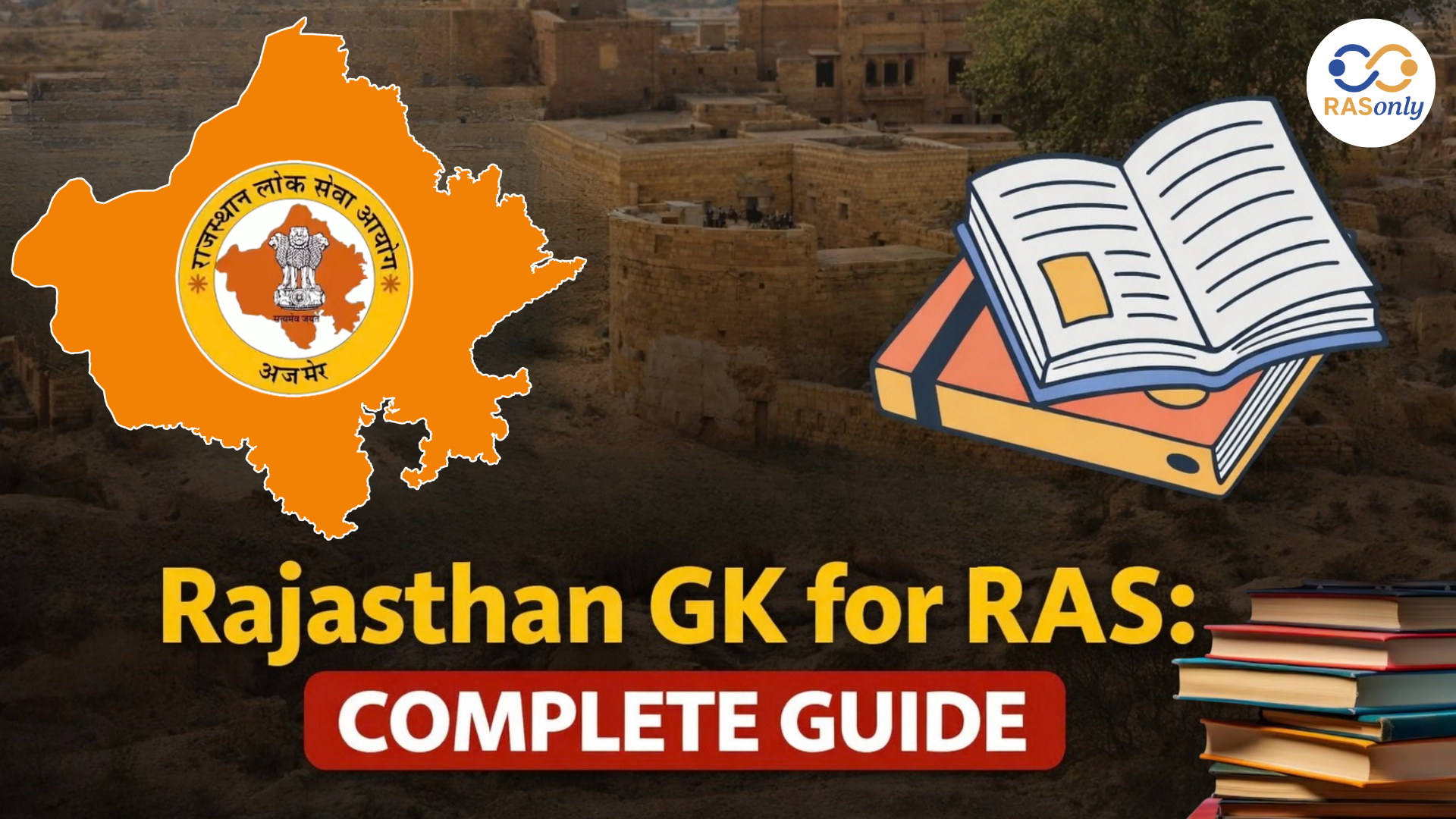RPSC RAS 2026 Subject Wise Exam Pattern for Prelims, Mains & Interview Details
- >
- RAS Preparation Resources
- >
- Internal Security of India: Challenges & Solutions
Internal Security of India: Challenges & Solutions

Get in Touch with RASonly!

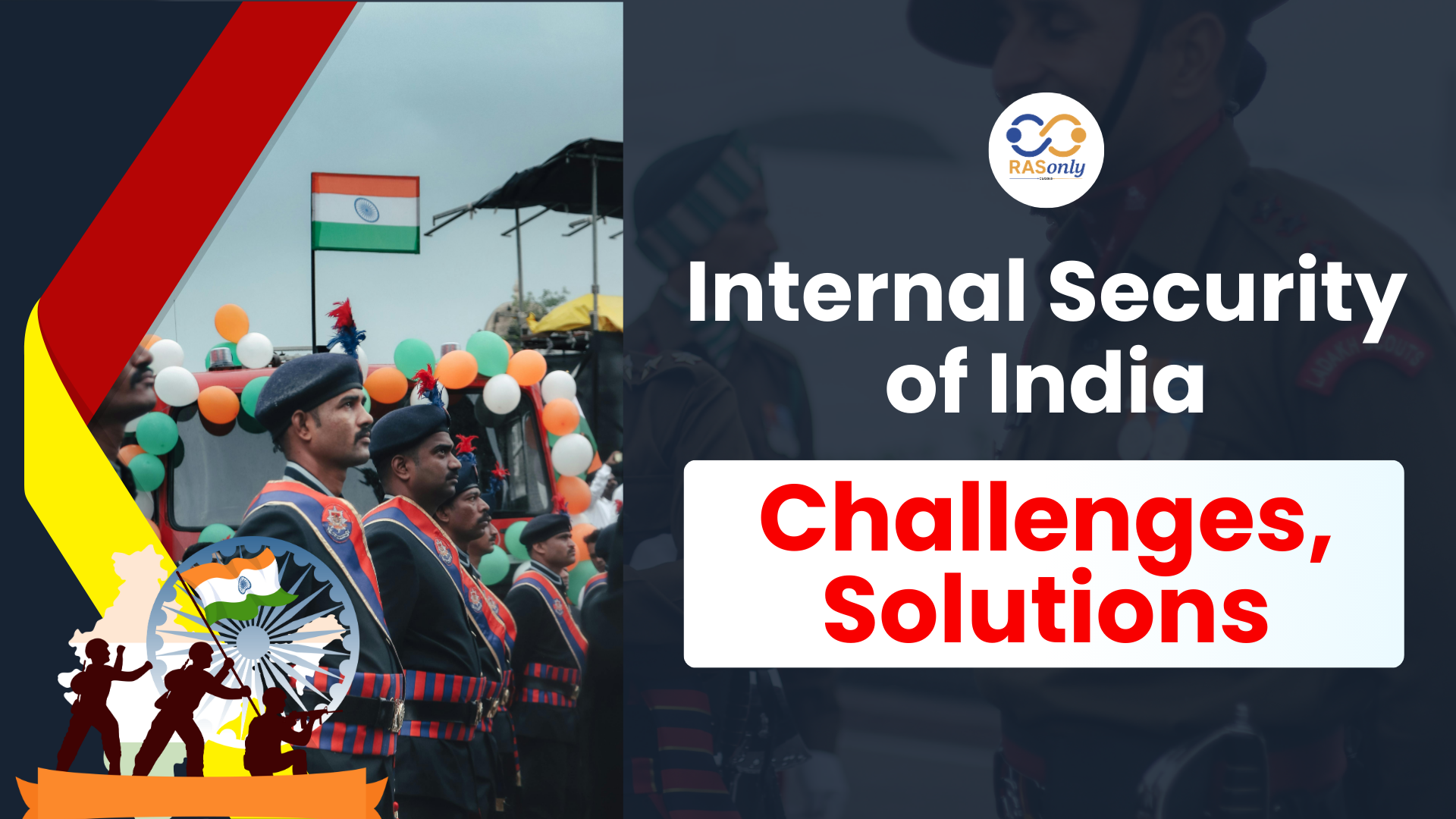
Internal security is all about the administration of the security within the territory of the nation, ensuring law and order, national sovereignty protection, and peace. Internal security falls under the Ministry of Home Affairs that is responsible for the management of the police forces and central armed police forces to counter these challenges.
Types of Security
- Internal Security: Is concerned with peace in the country, law enforcement, and sovereignty.
- External Security: Comprises defence against external aggression, managed by the Ministry of Defence and defence forces.
National Security and Its Changing Nature
- National security had formerly indicated the protection of the state, territorial integrity, and sovereignty from physical threats. Nevertheless, these days, it includes a wider array of threats, such as:
- Economic Threats: Interference in economic activities can destabilize national growth.
- Technology-based Threats: Cyber terrorism, space warfare, etc.
- Health Security: Such diseases as tuberculosis, malaria, and HIV which impact the people and economy.
Key Features of Internal Security
- Maintaining the nation's laws and honoring sovereign authority.
- Securing territorial integrity and sovereignty.
- Fostering a peaceful internal climate and fair development.
- Ensuring security and livelihood of citizens, bringing about a just and prosperous climate.
- Note: Destabilizing a nation internally with disturbances (such as terrorism, Naxalism, insurgency) is inexpensive and less objectionable than traditional war.
Principal Challenges to Internal Security
India is beset by a variety of internal security problems, some of which have roots that go deep into historical, political, and social backgrounds. Some of these are:
- Political Instability & Social Disharmony
- Growing regionalism, ethnic divisions, and communal tensions.
- Naxalism
- Insurgency of Naxalite groups, particularly in the countryside.
- Terrorism & Organized Crime
- Linkage between terrorism and organized crime, with cross-border elements commonly involved.
- Cybercrime & Cybersecurity
- Growing incidence of cyber-terrorism, hacking, and attacks against national infrastructure.
- Religious & Caste-Based Violence
- Surging caste and communal crimes.
- Coastal & Border Security
- Weakness of the borders, particularly with hostile neighboring nations such as Pakistan and China.
- Insurgency in North-East & Militancy in Jammu & Kashmir
- Persistent militancy, insurgency, and secessionist tendencies.
Factors Responsible for Internal Security Issues
A number of factors aggravate internal security issues in India, such as:
- Historical Legacy
- Post-independence government problems and unresolved regional tensions.
- Unfriendly Neighbors
- An endless row with China and Pakistan.
- Socio-economic Issues
- Unemployment, unequal growth, and socio-economic imbalances.
- Administrative Failures
- Governing inefficiencies, absence of accountability, and inefficient law enforcement.
- Partisan Politics
- Caste, ethnic, and sectarian politics that widen the divide.
- Geographical Factors
- Harsh terrain in proximity to borders, and hard-to-reach, isolated areas where it is difficult to ensure law and order.
Solutions to Improve Internal Security
- Police Reforms
- Policing effectively, implementation of the Prakash Singh ruling, and improved coordination between state and central forces.
- Central Anti-Terrorism Agency
- A single national counter-terrorism establishment such as the National Counter Terrorism Centre (NCTC).
- Enhanced Governance
- Addressing corruption, better policing, and socio-political problems.
- Perception Management
- Creating counter-narratives to challenge terrorist propaganda as well as insurgency.
- Socio-Economic Development
- Fostering inclusive development to eliminate root causes of unrest like joblessness and regional disparities.
- Cybersecurity Measures
- Having a national cybersecurity policy to secure important infrastructure and information.
Key Government Initiatives
- NATGRID
- A national intelligence grid to merge data from different law enforcement agencies for enhanced tracking and coordination.
- CCTNS
- The Crime and Criminal Tracking Network and System supports improved information exchange between police stations throughout the country.
- CERT-In
- The Computer Emergency Response Team is responsible for securing India's cyber infrastructure and dealing with cyber threats.
- SAMADHAN
- A plan to counter Naxalism, addressing development, effective policing, and application of technology.
Way Forward
- Minimize Ethnic and Social Inequalities
- Ensure fair distribution of resources, jobs, and opportunities.
- Public Grievance Redressal
- Establish systems to address grievances in conflict-affected areas.
- Strengthening Infrastructure
- Improve communication, transportation, and housing in conflict zones.
- Coordination Among Security Forces
- Better cooperation between central and state forces, reducing duplication of efforts.
- Empower Anti-Narcotics Agencies
- Strengthen institutions like the Narcotics Control Bureau to curb drug trafficking and related crimes.
Conclusion
India's internal security challenges are complex and need an integrated and holistic response. Although there have been serious improvements in many areas, sustained efforts in governance, socio-economic development, and good law enforcement are critical to ensuring long-term internal stability.
Post Category
- RAS Salary
- Result
- RAS Admit Card
- RAS Job
- RAS Cutoff
- Preparation Tips
- RAS Answer Key
- RAS Exam Analysis
- RAS Syllabus
- RAS Previous Year Papers
- RPSC RAS Exam Pattern
- RAS Interview
- RAS Mains Exam Date
- RAS Vacancy
- RAS Test Series
- RAS Best Books
- RAS Preparation Resources
- RAS Coaching Centre
- History
- Polity
- Geography
- Economics
- Science
- Art and Culture
- RPSC RAS Application Form
- RPSC RAS Notification
RASonly Interview Guidance Program

Mr. Ashok Jain
Ex-Chief Secretary Govt of Rajasthan
- IAS officer of the 1981 batch, Rajasthan cadre.
- Passionate about mentoring the next generation of RAS officers with real-world insights.
- Got retired in Dec 2017 from the post of Chief Secretary of the state of Rajasthan.

Mr. Guru Charan Rai
Ex-ASP / SP in Jaisalmer
- Guru Charan Rai, IPS (Retd), retired as Inspector General of Police (Security), Rajasthan, Jaipur in 2017.
- Served as ASP and SP in Jaisalmer, Nagaur, Sri Ganganagar, Sawai Madhopur, Dausa, Sikar, and Karauli.
- He also held key positions as DIGP and IGP in the Law and Order division.

Mr. Rakesh Verma
Ex-IAS Officer, B.Tech, MBA, and M.A. (Economics)
- IAS officer of the 1981 batch and retired in Chief Secretary Rank.
- Civil servant of high repute and vast experience.
- Has been teaching UPSC CSE subjects for the last six years.
Related Post
Daily Current Affairs for RAS Exam Preparation 2026
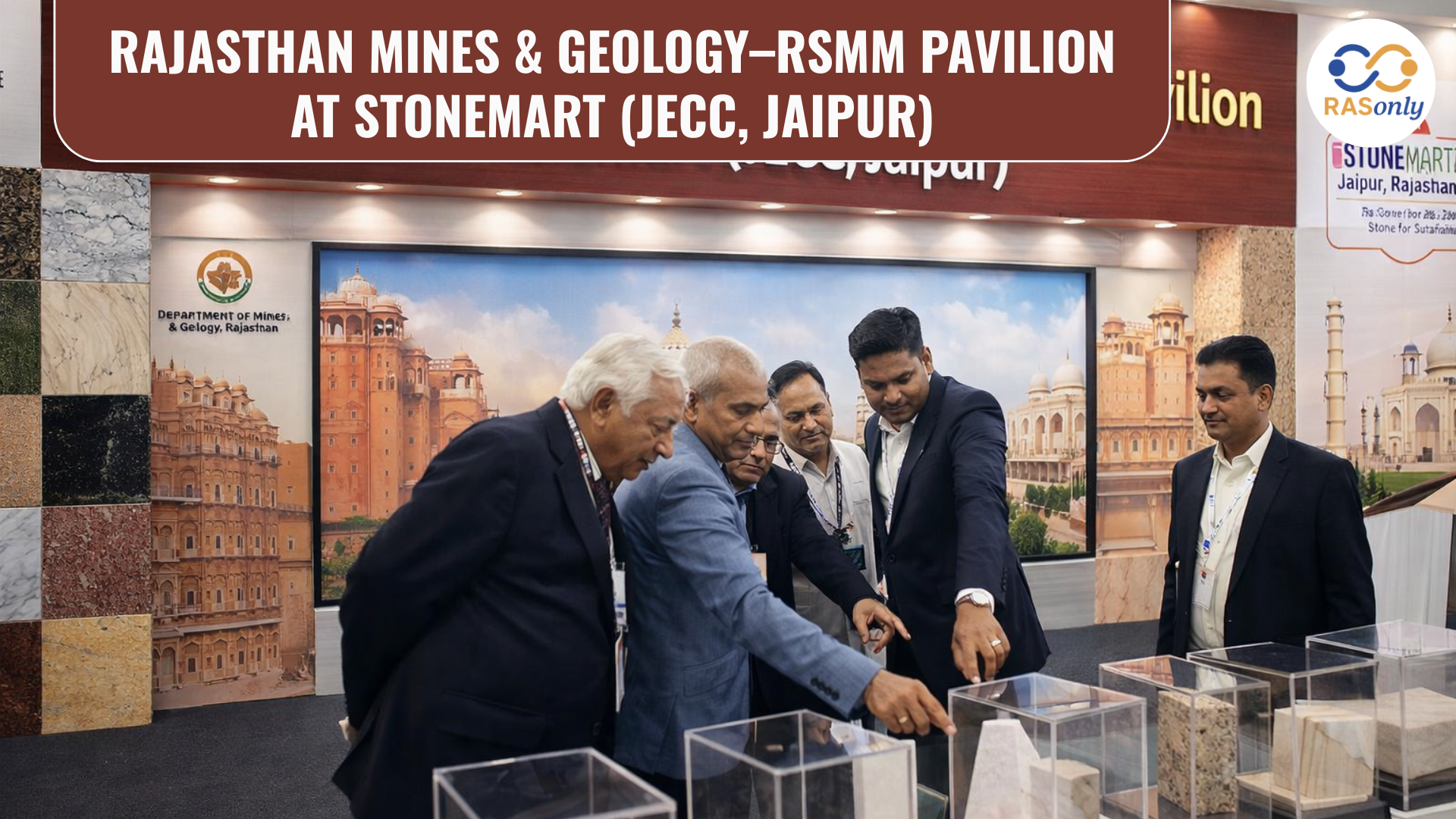
Rajasthan Pavilion Shines at Stone Mart Jaipur 2026
February 07, 2026
Rajasthan Achieves 3,000 MW Under PM-KUSUM Scheme
February 07, 2026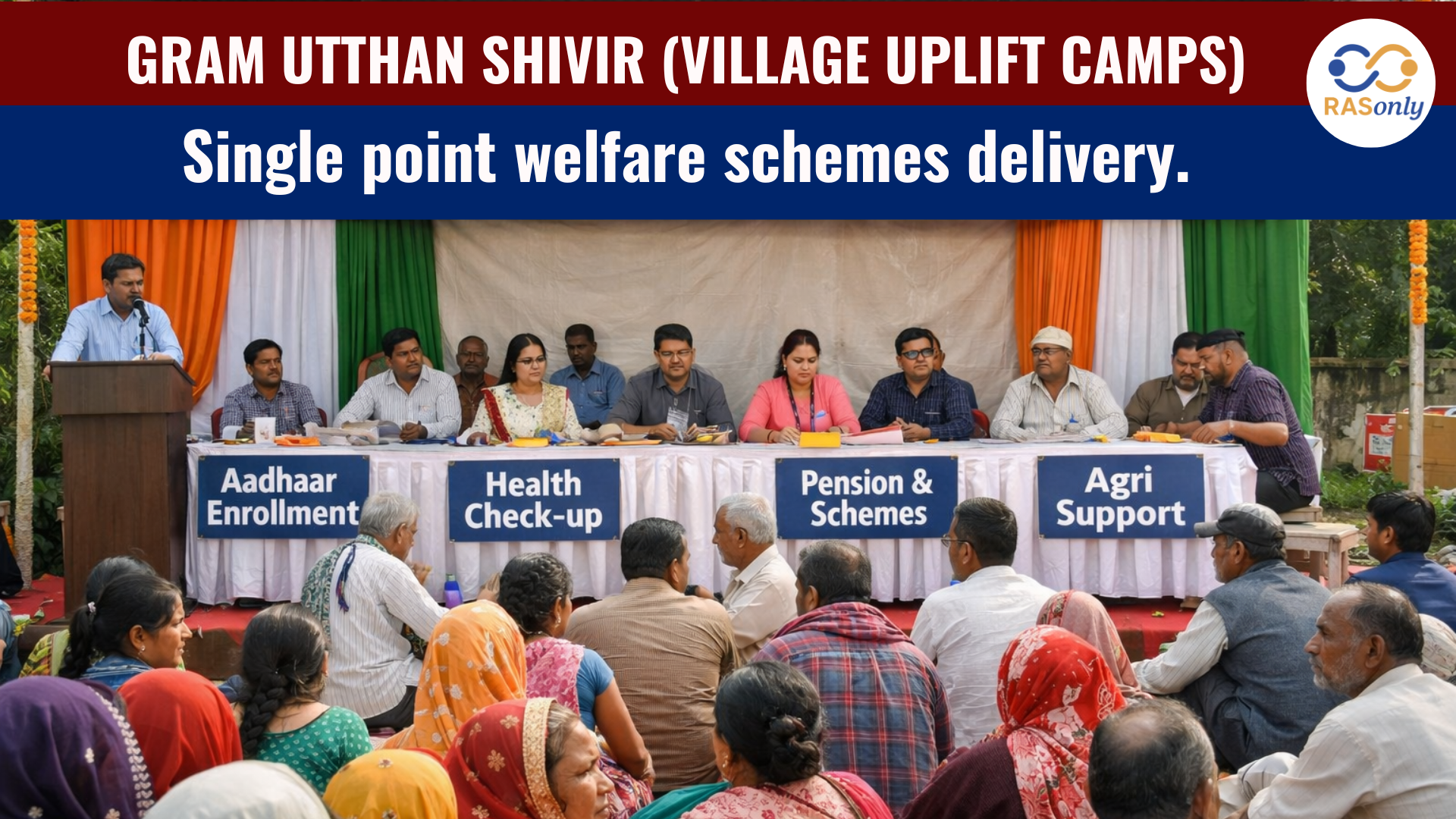
Gram Utthan Shivirs Strengthen Rural Governance in Rajasthan
February 07, 2026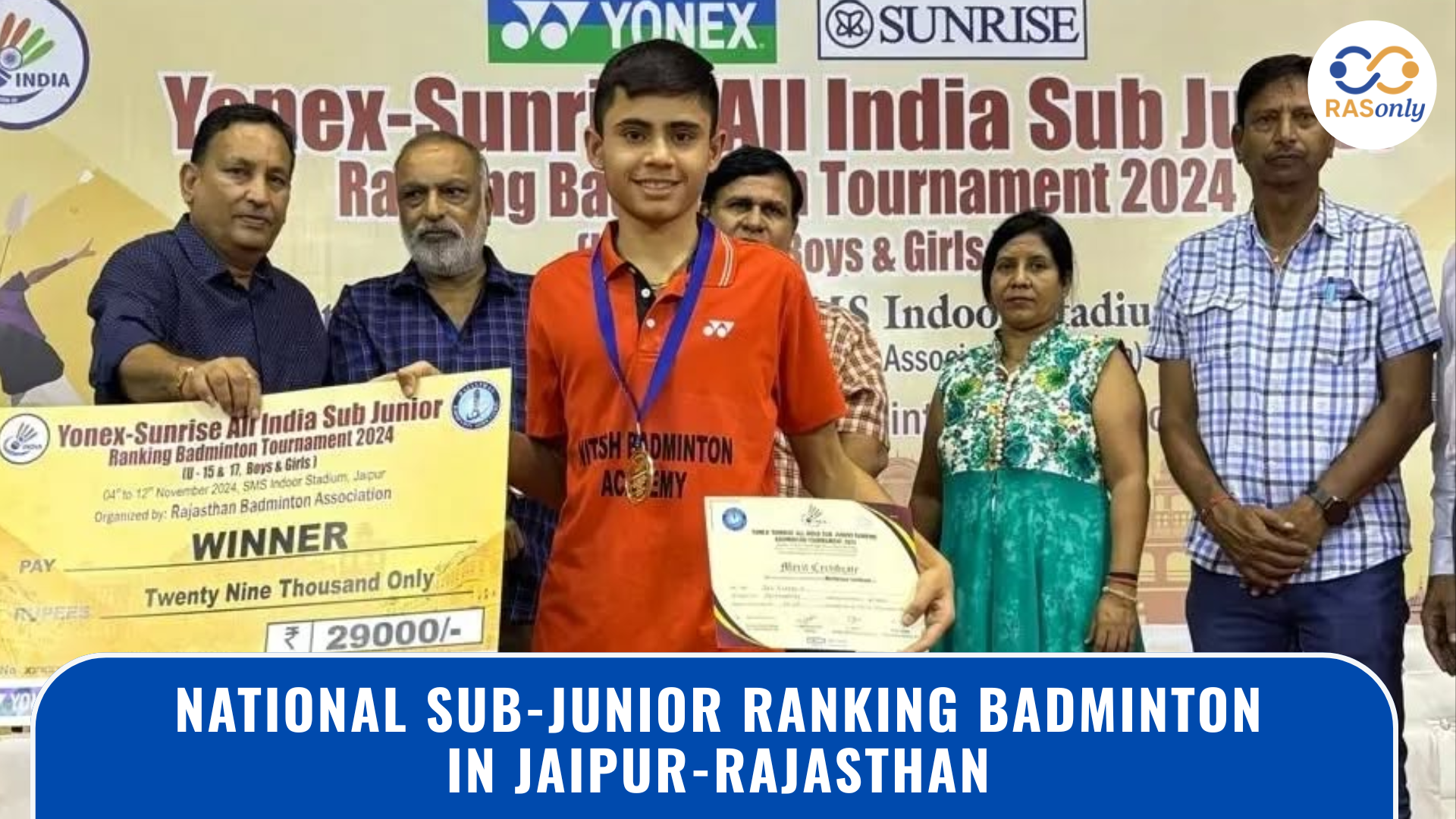
Jaipur Badminton: 72-Minute U-15 Final Creates Record
February 06, 2026👉🏻 Register Today to Join Classes! 👍🏻
- Team RASOnly -
🎯 Benefits of RASOnly Coaching:
- ✅ 1:1 Mentorship with RAS Officers
- ✅ Experienced and Expert Faculty
- ✅ Free Library Access
- ✅ Daily Minimum 4 Hours Must
- ✅ Comprehensive Study Material
- ✅ Regular Tests & Performance Analysis
- ✅ Personalized Guidance & Doubt Solving
- ✅ Online & Offline Class Options
- ✅ Affordable Fees with Quality Education
Key Highlights:
- 👉🏻 3-Day Refund Policy
- 👉🏻 New Batch Starting from 04 August
- 👉🏻 Registration Amount: Only ₹1000





